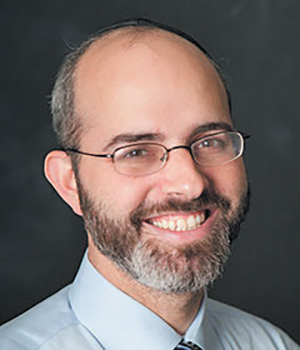
May these words of Torah serve as a merit le’iluy nishmat Menachem Mendel ben Harav Yoel David Balk, a”h.
This week we learned Sanhedrin 6 and 7. These are some highlights.
Sanhedrin 6: Is a rabbi obligated to teach halachot his listeners might have difficulty with?
Our Gemara teaches about the mandate not to fear any man. The following question came before Rav Yitzchok Zilberstein. A teacher of Torah would teach a class of Halacha in a synagogue. The attendees at the class were not knowledgeable, and therefore not always respectful to tradition. He was up to Bava Kama 38a. Bava Kama 38a has a law that is not politically correct. Modern sensibilities would have a hard time with it. The teacher asked the rav, “Should I teach the law? Perhaps I should skip it and move on to a discussion that would be easier for people to accept.” The teacher worried that if he would teach the law, his listeners would get very upset with him and give him a hard time.
Sanhedrin 6b teaches that if two litigants come to court, one is pleasant and the other is rough, then if the judge has not yet heard their claims, or he has heard their arguments but he does not yet know who is right, he can recuse himself from the case. Due to fear about having to issue a ruling against the tough litigant and then having to deal with unpleasantness, the judge can step away. However, if the judge hears the arguments and sees that the soft litigant is correct and the tough one wrong, he cannot step away. The Torah commands the judge not to fear anyone. He cannot allow his trepidation to cause him to hold his truth inside. He must fearlessly speak truth to power. Perhaps, our case is like when a judge already sees who is correct. The Torah commands the judge not to fear. He should speak truth, trusting in Hashem at his side. He should teach the law, even though the listener might not want to hear it.
Rav Zilberstein points out that Yerushalmi Sanhedrin 2:1 relates that Reish Lakish once related a halacha that upset the nasi. Even when the nasi was upset Reish Lakish did not back down. “Do you think that because of fear I would not say the Torah truth? Rav Shimon Bar Rav Yitzchok taught that when we are publicizing Jewish law we are working with Hashem. There is no need, therefore, to hold anything back due to fear.”
Rav Zilberstein encouraged the scholar to act as Reish Lakish and teach the law the students might find objectionable. He should pray beforehand that Hashem help him and that the students should accept the Torah truth. (Chashukei Chemed)
Sanhedrin 7: Final judgment and the need to record novel Torah thoughts
Our Gemara provides different explanations for a verse in Proverbs, “poter mayim reishit madon, v’lifnei hitgala hariv netosh.” One explanation is that a judge can offer a compromise only before he hears the claims of the litigants. Another explanation of this verse is that the soul is first judged about water, the matter of learning Torah. Tosafot (s.v. Ela) finds this lesson difficult. In Tractate Shabbos (31a) we learn that the soul is first asked if “nasata venatata b’emunah,” did you give and take with faith. This seemingly is a question about business ethics. The soul is asked if it was faithful and honest in all business transactions. If we are first asked about business then we are not first asked about Torah. So, what is the matter that we are judged on first?
Maharit (Sanhedrin 40a) quotes Radbaz’s answer to the seeming contradiction. Gemara Shabbos meant to say that man is asked if he gave and took honestly in Torah. Torah study requires effort. It is a struggle to try and truly grasp the truth of Torah. Some study Torah insincerely. They seek to impress others with their intellectual brilliance. They engage in a brilliant yet outlandish analysis called pilpul. The first question the soul is asked in the next world is about its study of Torah. Did you learn in the honest and true way? Did you try to understand what the lesson truly was? Did you study in a manner that could lead to discovery of the halacha?
Yalkut Hame’iri suggests that included in the mandate of honest study of Torah is the obligation to write down your novel Torah insights. In business, a storekeeper must keep good records. If he writes down who bought on credit and for how much, then he will not end up collecting from the wrong people or the wrong amounts. The combination of our Gemara and the Gemara in Shabbos teaches that we are to study Torah as an honest businessman does business. We have to write down our novel insights so that we don’t forget them. The first question we will be asked in the final and ultimate judgment will be about how we learned. If we did not take the care to write down our novel insights, then we did not learn as an honest businessman who keeps good records to make sure he does not forget. We might fail the first question of the ultimate test. (Mesivta)
By Rabbi Zev Reichman
Rabbi Zev Reichman teaches Daf Yomi in his shul, East Hill Synagogue.











